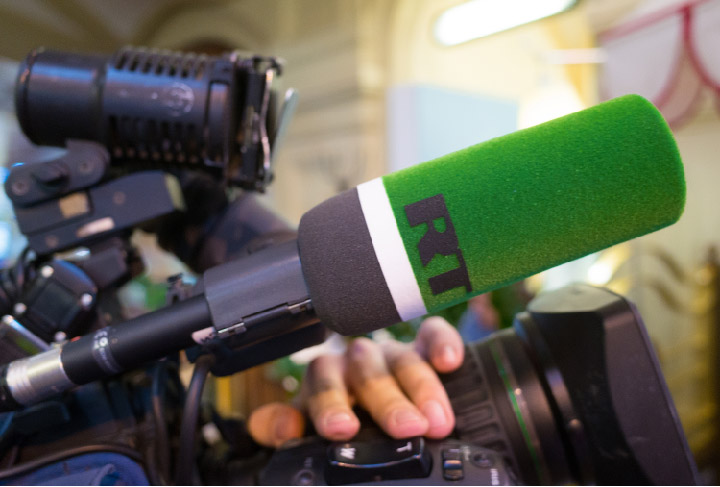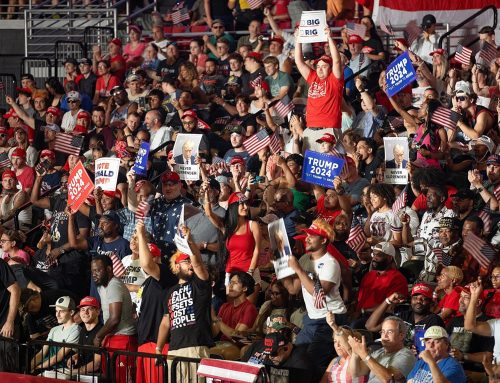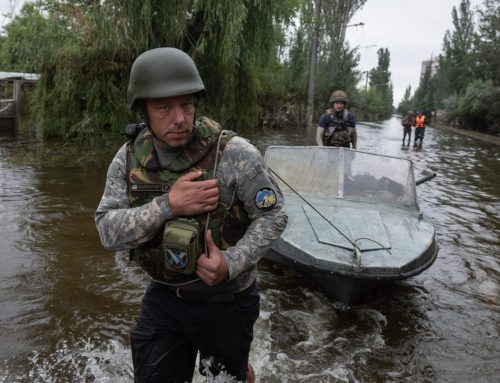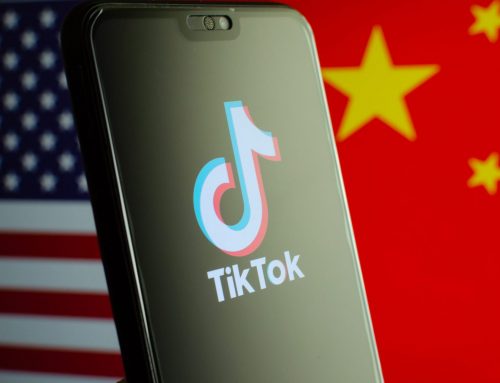Prior to President Biden’s address to the nation last Thursday, Russian state media covered speculation and reported concerns about Biden’s lack of press conferences, at times questioning his physical and/or mental health. They also highlighted an incident in which he appeared to forget the name of Secretary of Defense Lloyd Austin. State media also played into controversies surrounding Biden’s immigration policy, elevating critical conservative voices and claims of an impending immigration crisis on the U.S. southern border. In coronavirus vaccine coverage, Russian state media and diplomats predictably pushed back on reports that Russian information operations were attempting to denigrate Western vaccines while promoting Sputnik V—at times drawing on the characterization of Russia as a benevolent global leader, as well as the more common theme that Sputnik V is superior. They also continued to emphasize positive stories about Sputnik V, such as Italy’s agreement to manufacture the vaccine. Meanwhile, state media seized on concerns over the AstraZeneca vaccine in Europe and, less pervasively, reports of earlier quality concerns about the Pfizer vaccine. A small amount of content also continued to highlight concerns about inequalities in global vaccine distribution, including claims that the United States is “hoarding” AstraZeneca vaccines (that are not yet approved in the country) or planning to send doses abroad due to potential side effects. Finally, there was more controversy surrounding RT Deutsch, which threatened to sue German tabloid Bild after the outlet suggested that reporters for RT Deutsch were engaged in espionage. RT Deutsch claimed that Bild’s “sensationalist tale” was part of a “NATO narrative” seeking to discredit RT’s work.
Chinese messengers last week returned to topics that have been ubiquitous over the past month. As was the case in the first week of March, “Xinjiang” remained the most mentioned term in Chinese diplomatic tweets last week (it was the fourth most mentioned term by the Chinese Twitter network overall). The narratives used to defend the Chinese government’s policies in the province were largely the same as they have been for the last several weeks: attacking Adrian Zenz, lauding the region’s “development” in recent decades, and highlighting democratic countries’ past atrocities as more worthy of conversation than China’s human rights abuses in Xinjiang. Additional talking points last week included amplifying a condemnation from Muslim clerics critical of the West’s motives in Xinjiang, trumpeting a Cuban-led UN statement supporting China’s policies, and promoting the idea that claims of genocide were merely an attempt by the West to derail the 2022 Winter Olympics in Beijing. Hong Kong was the second most mentioned term in both Chinese diplomats’ tweets as well as in the entire Chinese network’s tweets last week. As was the case with Xinjiang, most of the arguments promoted by Chinese diplomats and state media were identical to those used in earlier weeks: Western support for Hong Kong reveals democracies’ double standards, electoral reform is fair and necessary, and criticism of China’s policies is foreign interference (with Japan specifically singled out for its criticism). China also continued its vaccine-related coverage last week, with Chinese state media promoting the safety and efficacy of Chinese vaccines as well as global distribution successes. This coverage was mixed with an increased focus on issues related to the AstraZeneca vaccine, namely the suspension of the vaccine in various countries after adverse reactions. Finally, the attack on Chinese factories and workers in Myanmar prompted speculation from Chinese propagandists that “the West” may be working to drive a wedge between the two countries. While this narrative is not new, the protesters’ increased hostility towards China may portend a greater focus on this narrative in the coming weeks.
Iran last week also replayed many of its favorite hits, including, most notably, a focus on the Iran nuclear deal (JCPOA). Once again, #JCPOA was the most used hashtag and the most used key phrase by official accounts monitored on the dashboard. Iranian officials and state media reiterated that the deal will only be revisited after the removal of sanctions, and they accused Washington of continuing the “failed policy” of the Trump administration. The most retweeted and liked tweets of the week, however, all focused on calls from the supreme leader for the United States to evacuate Syria and Iraq and to discontinue support for Saudi Arabia’s ongoing war in Yemen. The focus on anti-American messaging, while a constant feature of Iranian outputs, was particularly pronounced last week, as the United States was mentioned in more than five times the number of tweets as the next most-mentioned country (not including Iran).
Explore the Hamilton 2.0 dashboard here.
The views expressed in GMF publications and commentary are the views of the author alone.








